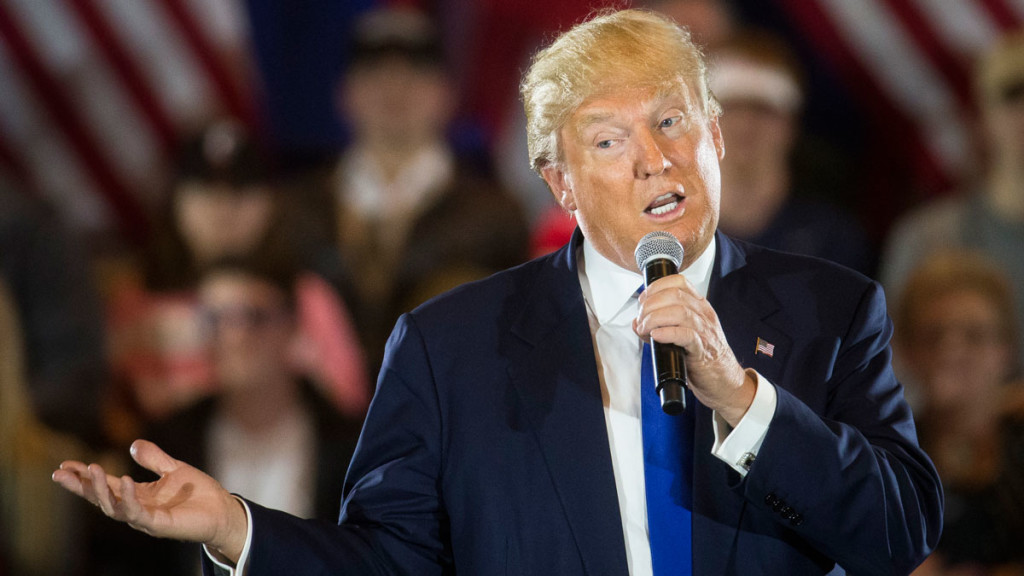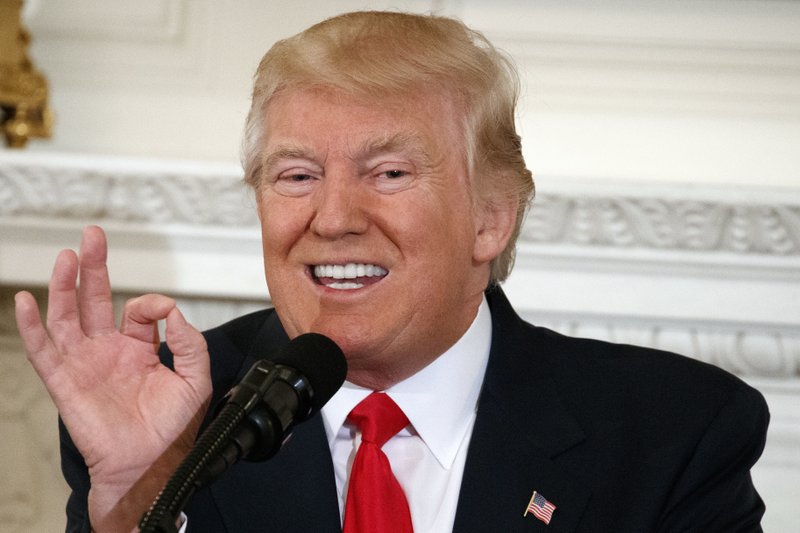Del Marsh pre-files bill to allow Alabamians to donate state income tax return monies to fund border wall

As federal lawmakers face a Feb. 15 deadline for reaching a deal on border security, an Alabama state senator has a solution of his own. Anniston-Republican, Senate President Pro Tempore Del Marsh on Tuesday announced that he has pre-filed legislation that would allow taxpayers to check a box on their Alabama tax returns to donate to We Build the Wall, Inc. “As I talk to people in my district and around the state, border security is the number one thing I hear about,” Marsh explained. “This is obviously an issue that has people very concerned and one that needs to be addressed.” Under Marsh’s proposal, if an individual desired to donate to We Build the Wall they would be able to check a box on their state income tax return and designate the amount of their tax return they wished to donate. Currently, Alabamians have the ability to check off contributions on their tax returns for many different entities including the Alabama 4-H, Alabama Aging program, Arts Development Fund, and USS Alabama Battleship Commission. “It is obvious that many people in the Federal government have little desire to address border security, so this is an easy way for people in Alabama, if they choose, to check a box and make a donation in support of building a border wall,” Marsh add. We Build the Wall, Inc. is a Florida-based non-profit raising funds to build the wall along the United States border with Mexico for national security purposes. It was launched in December by 37-year-old Brian Kolfage, a triple amputee who received a Purple Heart while serving in Iraq. At the time of publishing it has raised over $20 million through a GoFundMe campaign. The 2019 Regular Session of the Alabama Legislature begins March 5.
Donald Trump filed for an extension on his 2016 tax return

President Donald Trump filed for an extension on his 2016 tax return, the White House said Saturday. Press secretary Sean Spicer did not provide information on when Trump sought the extension or why. Tax Day this year was on April 18. The Internal Revenue Service allows individuals and businesses to apply for a six-month extension to get more time to file a return. An extension does not provide more time to pay taxes. As a candidate and as president, Trump has refused to release his tax returns, breaking a decades-long tradition. He has said he would release them when the Internal Revenue Service completes an audit – though experts and IRS officials said such audits don’t bar taxpayers from releasing their returns. The few Trump tax returns the public has seen weren’t released by him, but disclosed by news outlets. Two leaked pages of his 2005 return that came out in March didn’t include full details on income and deductions, but did show that he would have benefited massively by an elimination of the alternative minimum tax – a feature of his just-outlined tax plan. And three pages that surfaced last year showed he had claimed a $916 million loss on his 1995 return, which could be used to reduce his taxes by offsetting later gains. Republished with permission of The Associated Press.
Donald Trump blasts release of 2005 tax form, reporter’s account

President Donald Trump earned $153 million and paid $36.5 million in income taxes in 2005, paying a roughly 25 percent effective tax rate thanks to a tax he has since sought to eliminate, according to newly disclosed tax documents. The pages from Trump’s federal tax return show the real estate mogul also reported a business loss of $103 million that year, although the documents don’t provide detail. The forms show that Trump paid an effective tax rate of 24.5 percent, a figure well above the roughly 10 percent the average American taxpayer forks over each year, but below the 27.4 percent that taxpayers earning 1 million dollars a year average were paying at the time, according to data from the Congressional Joint Committee on Taxation. The tax form was obtained by Pulitzer prize-winning journalist David Cay Johnston, who runs the website DCReport.org, and reported on MSNBC’s “The Rachel Maddow Show.” Johnston, who has long reported on tax issues, said he received the documents in the mail, unsolicited. Trump took to Twitter early Wednesday to cast doubt on Johnston’s account. “Does anybody really believe that a reporter, who nobody ever heard of, ‘went to his mailbox’ and found my tax returns? @NBCNews FAKE NEWS!” Johnston, speaking to ABC’s “Good Morning America” Wednesday, said it’s entirely possible that he received the returns from Trump himself or someone close to him, saying, “Donald has a long history of leaking things about himself.” He noted that the real question remains the sources of Trump’s income, saying Trump doesn’t want us to know “who he’s beholden to.” Trump’s hefty business loss appears to be a continued benefit from his use of a tax loophole in the 1990s, which allowed him to deduct previous losses in future years. In 1995, Trump reported a loss of more than $900 million, largely as a result of financial turmoil at his casinos. Tax records obtained by The New York Times last year showed the losses were so large they could have allowed Trump to avoid paying taxes for up to 18 years. But Trump’s 2005 filing shows that another tax prevented him from realizing the full benefit of those deductions. The bulk of Trump’s tax bill that year was due to the Alternative Minimum Tax, a tax aimed at preventing high-income earners from paying minimal taxes. The AMT requires many taxpayers to calculate their taxes twice — once under the rules for regular income tax and then again under AMT — and then pay the higher amount. Critics say the tax has ensnared more middle-class people than intended, raising what they owe the federal government each year. Were it not for the AMT, Trump would have avoided all but a few million dollars of his 2005 tax bill. Trump’s campaign website called for the end of the AMT, which is expected to bring in more than $350 billion in revenues from 2016 to 2025. As a candidate and as president, Trump has refused to release his tax returns, breaking a decades-long tradition. Although he initially promised to do so, he later claimed he was under audit by the Internal Revenue Service and said his attorneys had advised against it — though experts and IRS officials said such audits don’t bar taxpayers from releasing their returns. The White House pushed back even before the release of the documents Tuesday night, saying that publishing the information was illegal. “You know you are desperate for ratings when you are willing to violate the law to push a story about two pages of tax returns from over a decade ago,” the White House said in a statement issued on condition that it be attributed to an anonymous official, although the president has decried the use of anonymous sources. The unauthorized release or publishing of federal tax returns is a criminal offense, punishable by a fine of up to $5,000 and up to five years in jail. But Maddow argued that MSNBC was exercising its First Amendment right to publish information in the public interest. Trump long insisted the American public wasn’t interested in his returns and said little could be learned from them. But Trump’s full returns would contain key details about things like his charitable giving, his income sources, the type of deductions he claimed, how much he earned from his assets and what strategies Trump used to reduce his tax bill. The issue was a major point of attack from his election rival Hillary Clinton, who suggested Trump had something to hide. The White House has not said whether the president plans to release his returns while he’s in office. More than 1 million people have signed a White House petition urging the president to release them. Republished with permission of The Associated Press


